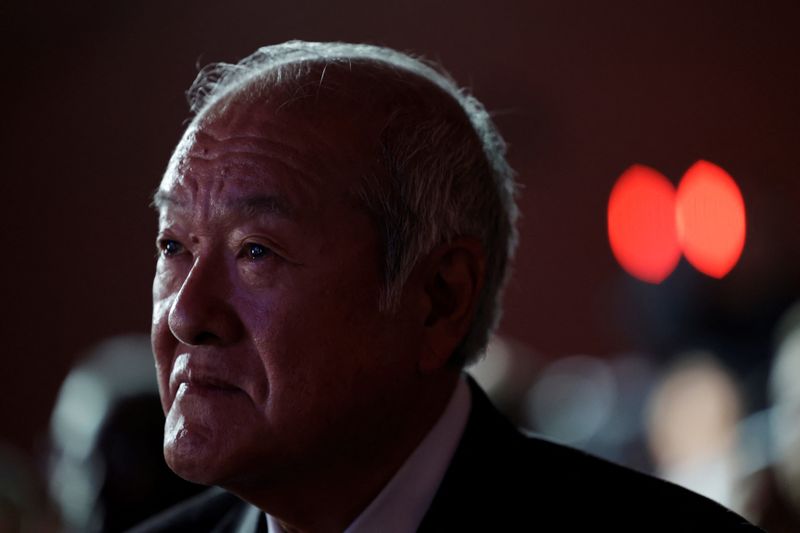
By Makiko Yamazaki
TOKYO (Reuters) -Japan’s finance minister said on Tuesday authorities were vigilant to sharp currency market moves, as the yen continued its slump to fresh 38-year lows against the dollar, but stopped short of giving a clear intervention warning.
The change in official daily commentary to reporters, in which an intervention warning has become almost customary, comes as analysts question the effectiveness of such jawboning in stopping sharp yen declines.
“Foreign exchange levels are set by the market reflecting a complex mix of various factors, including inflation, current account balance, market sentiment and speculative moves,” finance minister Shunichi Suzuki said in a regular post-cabinet meeting news conference.
“We’ll continue to closely watch the market,” he said.
Although Suzuki did say there has been no change in the government’s stance, the absence of usual comments on the readiness to intervene marked a break in what had become almost routine for officials.
Yujiro Goto, managing director & chief FX strategist at Nomura, said the official comments on Tuesday pointed to a slight change in tone.
“Repeating the same wording could inevitably weaken the impact (of warnings),” he said. No change in the wording could also be interpreted by investors that there would be no immediate action yet, he added.
“But I don’t think this (absence of intervention warnings) suggests that interventions are less likely now than before,” he said.
The yen sank to 161.72 per dollar late Monday, its weakest level since 1986, keeping markets on heightened alert for any signs of yen-buying operations from Tokyo to prop up the currency.
It has already fallen more than 12% this year as it continues to be weighed down by stark interest rate differentials between the U.S. and Japan.
Japanese authorities, including Suzuki and top currency diplomat Masato Kanda, escalated their warnings last week when the yen fell past 160 to the dollar, the latest line in the sand traders had drawn for Japan to intervene in the markets.
Suzuki last week said authorities were “deeply concerned” about the impact of “rapid and one-sided” foreign exchange moves on the economy and would respond appropriately to excessive currency moves.
Suzuki, when asked about the effectiveness of verbal interventions, said in Tuesday’s conference that his comments on foreign exchange are generally in response to questions from reporters.

He said he was not in a position to comment on their effectiveness.
A weaker yen is a boon for Japanese exporters, but a headache for policymakers as it increases import costs, adds to inflationary pressures and squeezes households.
This post is originally published on INVESTING.



